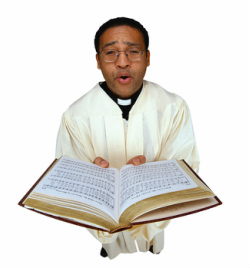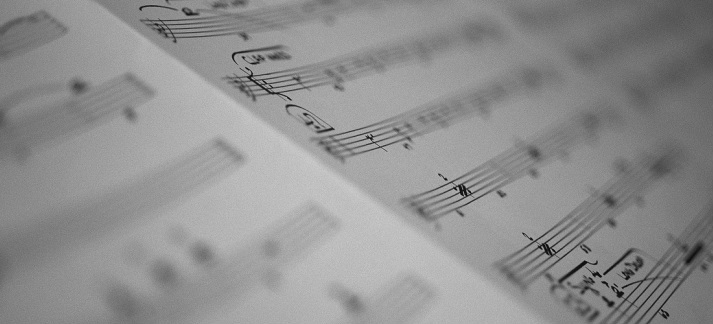 God has given man many incredible gifts, including the gift of music. Music, especially singing, is one way that man can communicate to God and praise God. This truth is referenced many times in the Psalms and other Bible verses. But why should Christians be concerned with studying the voice and singing? Isn't it really the heart that matters anyway? One point to consider is the worth of the One to whom we sing. God is infinitely powerful, but incredibly merciful; he is all-knowing and perfectly holy. If we are truly singing for this amazing Lord, doesn't He deserve our best? When we view God correctly and view our music as a sacrifice of praise to God, we can begin to realize the importance of having the best music possible. When Abel brought an acceptable sacrifice, God was well pleased; but when Cain brought something that was second best, God rejected it.
2 Comments
While there are many ways you could potentially organize your sheet music for reference and performance, these methods are the two that I have found to be most useful personally. As I have figured out how to organize my sheet music, I have had better results finding the pieces of music that I need when I need them. Both of these methods are simple, easy-to-understand, and practical for the active musician.
Since the advent of microphones and electronic amplification, the art of singing has been modified to fit new styles that would not have been nearly as practical without the aid of amplification. However, going back to classical voice training is not a bad idea. It will help singers in any genre to maintain a healthy voice and get the best sound possible.
Since I have begun teaching voice students at our local arts center, I have found that there are three basic concepts that I want my students to grasp from the start. These are some of the fundamental concepts that other voice teachers may also want to communicate to their students. Oftentimes modern music and culture does not take much time to think on things of the past. The common theme seems to be about the present, our current problems and successes, rather than reflecting on anything of a historical nature. But is there something missing when the past is forgotten? As a musician, taking time to reflect on the past can give great insight into what is truly needed today. By studying how the great composers of past times created their great works, the modern composer can make a more meaningful contribution to today's world. One current composer that obviously does this kind of reflection is the choral composer John Rutter. In this video, Rutter explains how looking into a little history led to inspiration for his most recent recording, This is the Day: Music on Royal Occasions. By looking back even during the period of his lifetime, Rutter created a recording that told a story. See his explanation below: For more insight from a great composer of our time, see more of John Rutter's commentary videos on his YouTube channel. In what ways do you look back to the past in your music? Leave comments on this post and let us know.
|
Search the BlogSubscribe via emailFind By Category
All
Archives
January 2016
|
Harmony Passion - Bringing together ideas and resources for church and community musicians



